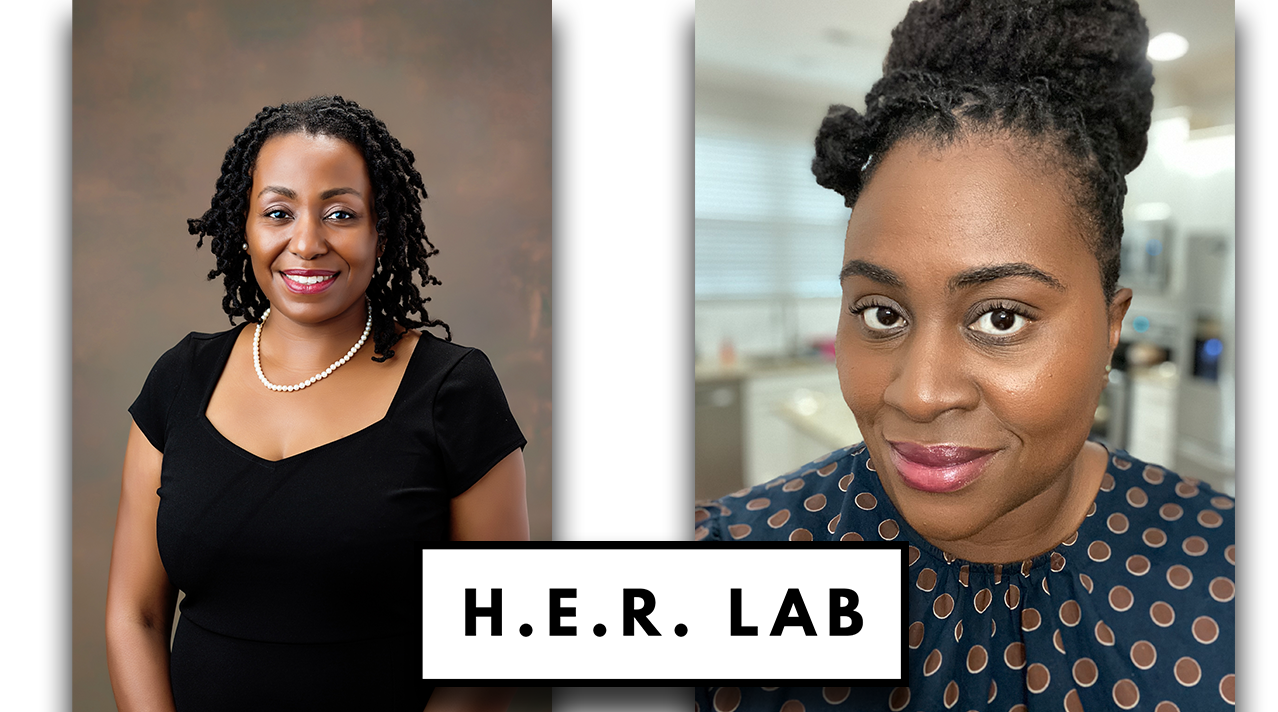The R4P Equity Evaluation Framework involves critical examination of the root causes of disparity and restructuring institutions to remove barriers to care and education. The H.E.R. Lab analyzes the roles of race and racism as the main contributors to racial health inequities.
The inaugural event of an Elon University research lab dedicated to ending racial health inequity gave participants a guide to evaluate and eliminate structural barriers to care stemming from racial bias.
Founders of the Health Equity and Racism Lab, or H.E.R. Lab, Associate Professor of Public Health Stephanie Baker and Assistant Professor of Public Health Yanica Faustin presented the R4P Equity Evaluation Framework during an hourlong instructional session Thursday night. R4P stands for Remove, Repair, Remediate, Restructure and Provide. About 60 people attended the session.
Launched earlier this month, the H.E.R. Lab’s mission is to advance the body of knowledge that illustrates racism as the root cause to health inequities and cultivate action toward undoing racism and improving population health. Its three focal areas are research, capacity building and advocacy/action. The lab’s work will happen where institutions, community organizing, and academia intersect.
The H.E.R. Lab will use the R4P method in its research and public health analysis.
“Health inequity is extremely complex, which is why it has persisted over generations,” Faustin said. “R4P can be used to plan a program, evaluate a program, and as a framework for research. These components aren’t linear, but all are essential for the framework to operate effectively.”
Those components are:
- Remove: Removing the forces or conditions that are adverse to health and health seeking. These power imbalances are embedded in most societal institutions and must be directly acknowledged and removed, Faustin said.
- Repair: Repairing the damage from the past. Faustin used Jim Crow laws, redlining in housing districts and communities, and the war on drugs as examples of harmful practices that continue to affect Black and minority populations. This step acknowledges that inequity persists over generations, and examines how past damage impacts a current population’s access to healthcare, ability to maintain health or practice healthy habits.
- Remediate: While working toward structural change, this step reduces exposure to unjust practices or unequal systems. Faustin likened it to placing a tarp over a leaky roof while arranging for permanent repairs to be made.
- Restructure: Eliminating disparities, where practices advantage or privilege some populations over others, requires permanently removing barriers, stressors and toxic exposures, Faustin said.
- Provide: The restructured system delivers health education, medical care and resources in a way that’s easily attainable for disparate populations based on evidence-based practices.
The webinar ended with a question-and-answer session with Vijaya Hogan and Dr. Diane Rowley, who devised the R4P framework and an accompanying assessment rubric while teaching and researching at the University of North Carolina at Chapel Hill’s Gillings School of Global Public Health. Baker and Faustin were co-authors of that published study.
They emphasized that R4P must be used in collaboration with a community and affected clients, gathering direct input and feedback, and that institutions must begin the process with an honest self-assessment.
“It’s intended to make us focus on the needs of the most vulnerable first,” Hogan said. “Everyone has access to the system, but it’s designed for the people with the most need.”
The framework is already part of some Elon public health courses.
Faustin showed how students used the framework to plan a hospital-centered breastfeeding education and advocacy program. That plan involved equity training for physicians, prenatal care and education, a postpartum support group, a systems-level approach for hospital grant funding, and hiring Black women to implement the program in targeted hospitals and cities.
As the H.E.R. Lab advances its work, Elon students will collaborate with Baker and Faustin and contribute individual research of their own. The inaugural student members of the H.E.R. Lab are Victoria Colbeck ‘22, Deena Elrefai ‘21, Kiara Hunter ‘21, Nyla Rivers ‘22, Min Stanwyck ‘21, Queen Assata Stephens ‘22 and Mia Wilson ‘21.
Hogan and Rowley are among five visionary members of the H.E.R. lab, and were Baker and Faustin’s mentors at UNC Chapel Hill. Others in that group are former American Public Health Association President Camara Phyllis Jones, co-founder and managing director of The Racial Equity Institute Deena Hayes-Greene, and Racial Equity Institute Senior Trainer Monica Walker.
To learn more about the H.E.R. Lab, visit its website www.herlab.org and social media pages at @HER_lab_elon.



